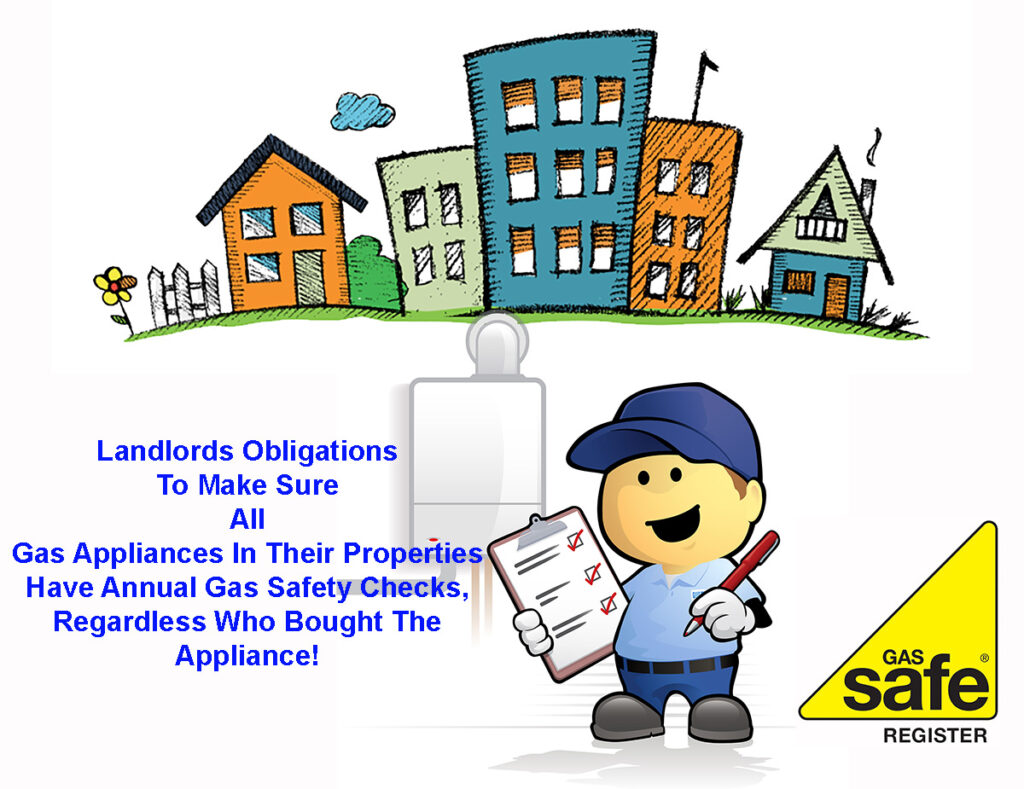
Annual Gas Safety Checks.
Can a landlord delegate gas safety checks and maintenance to a tenant?
The answer is NO.
Landlords Obligations.
Regardless of who bought or installed the appliance, it is still the landlord’s responsibility to make sure the appliance is safe to use, as he has the responsibility of all the occupants in his property and adjacent properties to make sure there are no faults.
A gas engineer or landlord should not expect the tenant to pay for a Gas safety check on the tenant’s appliance if the tenant is paying rent to include maintenance and services.
If the appliance developed a fault and caused an accident the landlord would be liable and at fault for not having a gas safety check done. Not only is he/she safeguarding his/her tenants he is also safeguarding his property. The landlords building insurance would be null and void if he did not have a gas safety check on an appliance fitted by him/herself or the tenant.
Furthermore, if a gas engineer tries to say that he will not be doing a gas safety check because it is the tenant’s appliance, then the gas engineer is at fault as all gas appliances have to be checked regardless of who bought them.
For further information visit:
https://www.hse.gov.uk/gas/domestic/faqlandlord.htm
According to Gas Safe Register.
It is the tenant’s responsibility to do an annual gas safety check on their Gas Cooker, which contradicts the hse.gov.uk website FAQ.
This is the screenshot of the email I received from Gas Safe Register today:
https://www.gassaferegister.co.uk/contact-us/
GAS SAFE REGISTER
Gas Safe Register website also mentions they are governed by HSE screenshot below and that it is the tenant’s responsibility to make sure their appliance is in good working order and have an annual gas safety check.
According to the Law:
Under section 11 of the Landlord and Tenant Act 1985, the landlord is responsible to:
- to keep in repair the structure and exterior of the dwelling, including drains, gutters, and external pipes,
- to keep in repair and proper working order the installations in the dwelling for the supply of water, gas, electricity, and sanitation (including basins, sinks, baths, and sanitary conveniences.
- to keep in repair and proper working order the installation in the dwelling for space heating and heating water.
Gas.
Gas safety is the highest priority in rented properties. All gas appliances, fittings, installations, pipes, and flues must be kept in perfect working condition. This applies to communal and private areas, regardless of whether tenants have access.
All landlords are required to arrange an annual gas safety check by a Gas Safe registered engineer. They must earn a gas-safe certificate or make improvements prior to letting tenants. The certificate must be made available to every tenant prior to moving in and must be kept for at least two years.
It is absolutely illegal for anyone to knowingly use unsafe gas equipment. Treat the matter with the highest regard! Always require the gas safety certificate prior to renting a property.
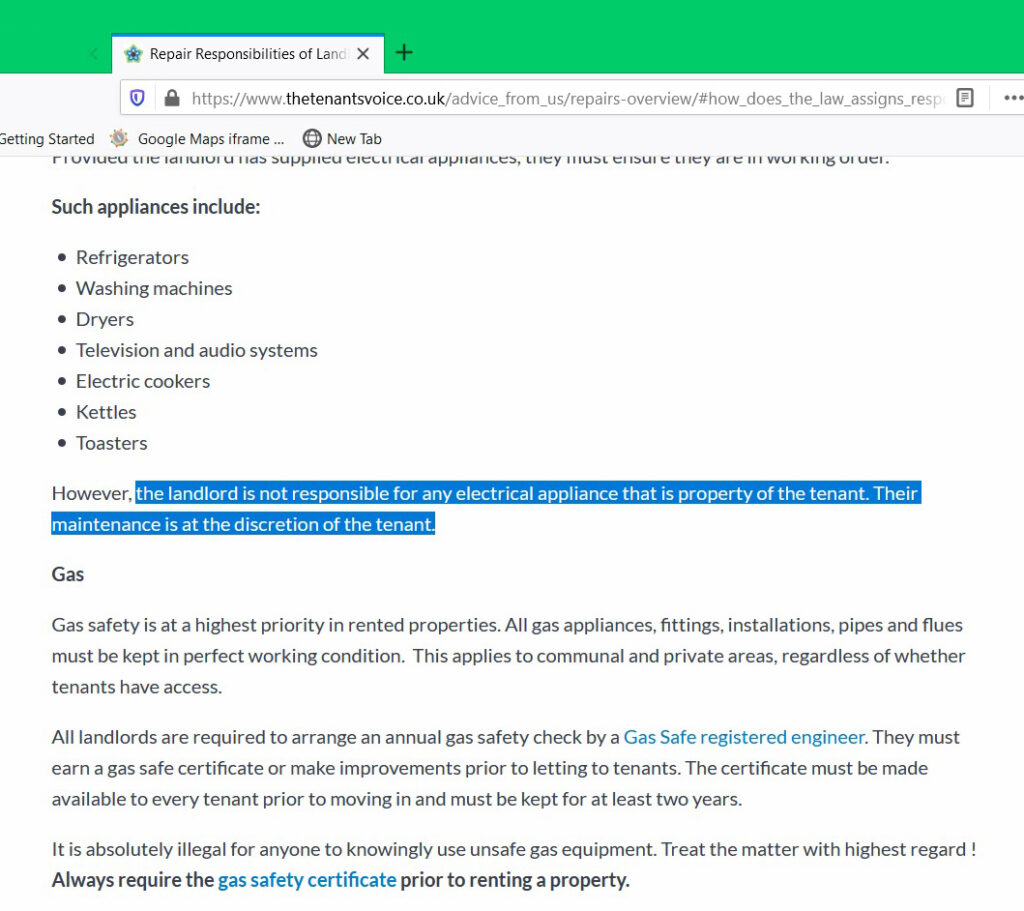
https://www.legislation.gov.uk/ukpga/1985/70/section/11
Carbon Monoxide Alarms.
From 1 Oct 2015, the Smoke and Carbon Monoxide Alarm Regulations 2015 came into force, which means all private rented sector landlords have an obligation by law to have at least one smoke alarm installed on every floor of their properties and a carbon monoxide alarm in any room where solid fuel is used.
For more information on licensed landlords in Wales please visit:
https://www.rentsmart.gov.wales/en/home/
For information about Carbon Monoxide Alarms (I assume if the law has been passed in England then it should also apply to Wales Scotland and Ireland):
FINAL THOUGHTS.
There is some contradicting information from other sources about the Gas Safety Responsibilities of a landlord and tenant and it seems a bit of a grey area according to: https://www.thetenantsvoice.co.uk/advice_from_us/repairs-overview/#how_does_the_law_assigns_responsibilities_for_repair_and_maintenance the landlord is not responsible for any electrical appliance that the tenant has installed in their property. Their maintenance is at the discretion of the tenant. But there is NO MENTION ABOUT GAS COOKERS which have been bought by the tenant??
🤔
In my opinion, it should be the landlord’s responsibility to make sure all gas appliances are checked regardless of who bought them. If anything went wrong the landlord is protected and so are his tenants.
There should be a clause in the tenant’s agreement if the tenant has purchased the appliance with a fixed fee added to their rent or the tenant needs to appoint a gas engineer of their choosing and provide a gas safety check certificate.
For the sake of Home Insurance the Home Owner should not rely on a third party (i,e the tenant) to carry out a Gas Safety Check and should arrange it himself or herself with a Competent Gas Registered Engineer.
However as it stands one cannot leave the onus on the tenant, not all tenants are internet savvy and will not do the research as I have, and MAY NOT KNOW THE LAW if it is not written into the tenant’s contract, then this opens up a can of worms.
Furthermore, EVERY Gas Engineers, Electrical Engineers and Gas, Electrical and Appliance Manufacturers and Retailers website should have linked and have information about:
- Hot-Zones
- Carbon Monoxide Alarms
- Gas Safety Checks and Landlord and Tenant Responsibilities and the law.
***I have contacted HSE for comment and am awaiting their reply. I will update this post as soon as hear from them.
BEING SAFE IS PARAMOUNT.
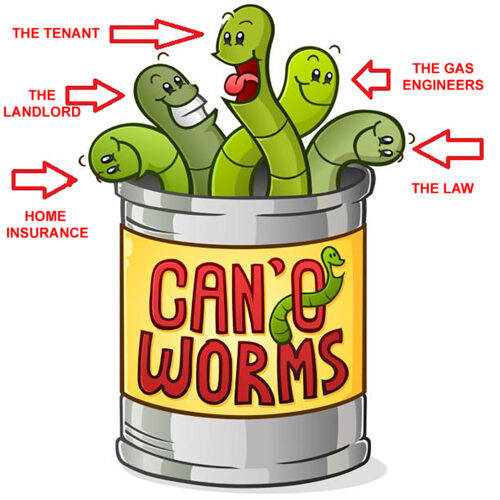

Cymru Marketing Journal (CMJUK) Offers Digital Marketing, Content Writing, Website Creation, SEO, and Domain Brokering.
An open platform that invites contributors and domain sellers serves as a dynamic marketplace where a diverse range of talents and offerings can converge. This platform acts as a collaborative space where individuals or businesses can share their expertise, creativity, and products with a broader audience.
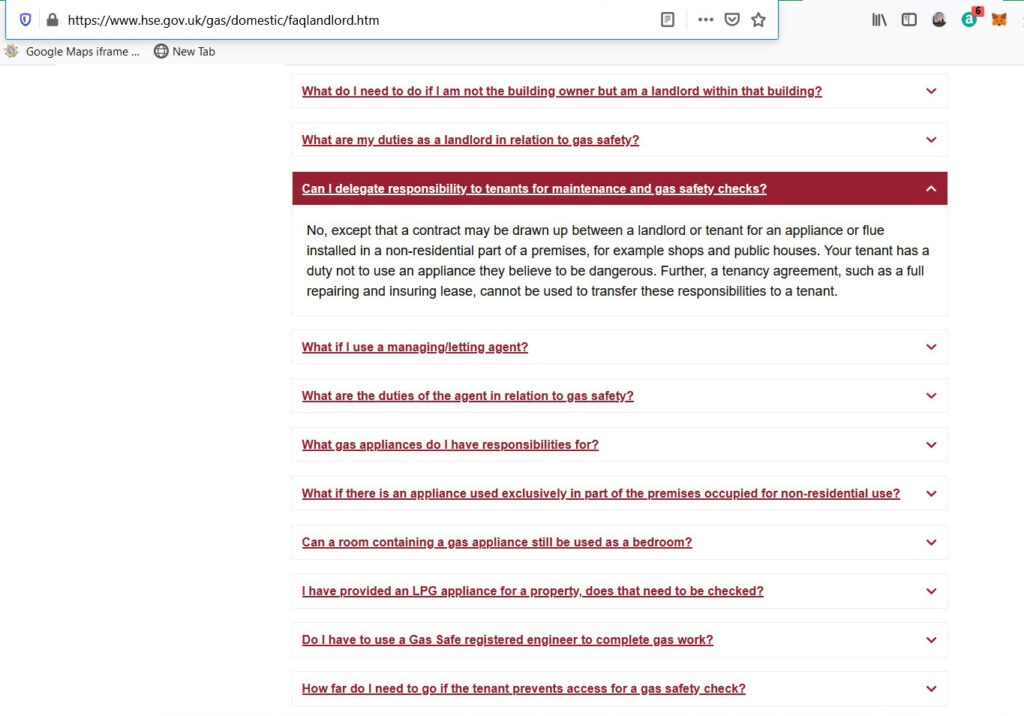
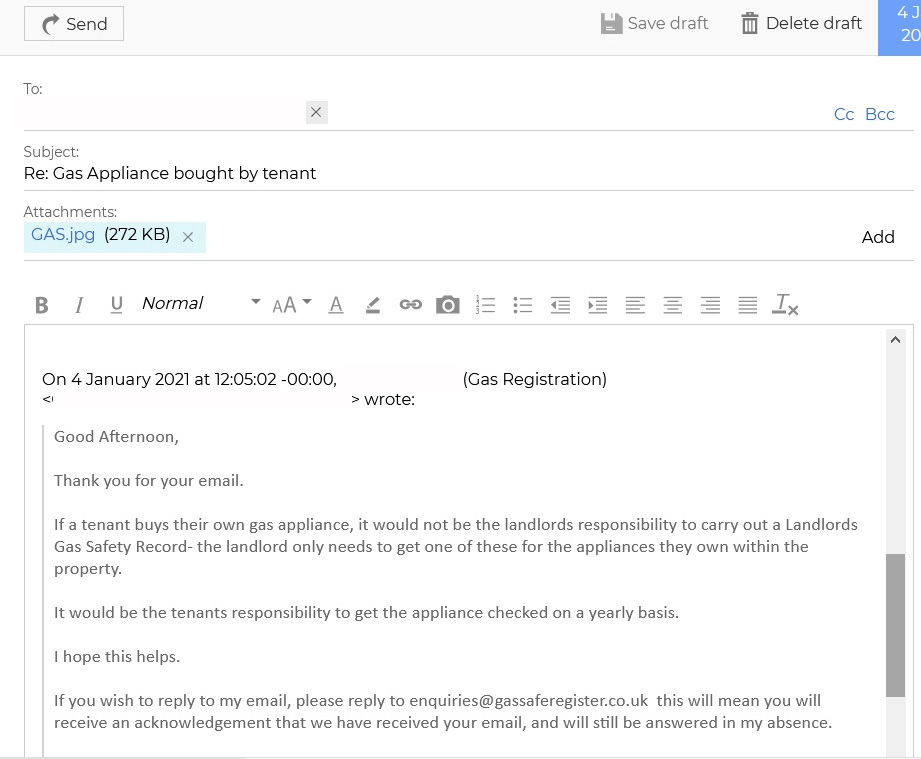
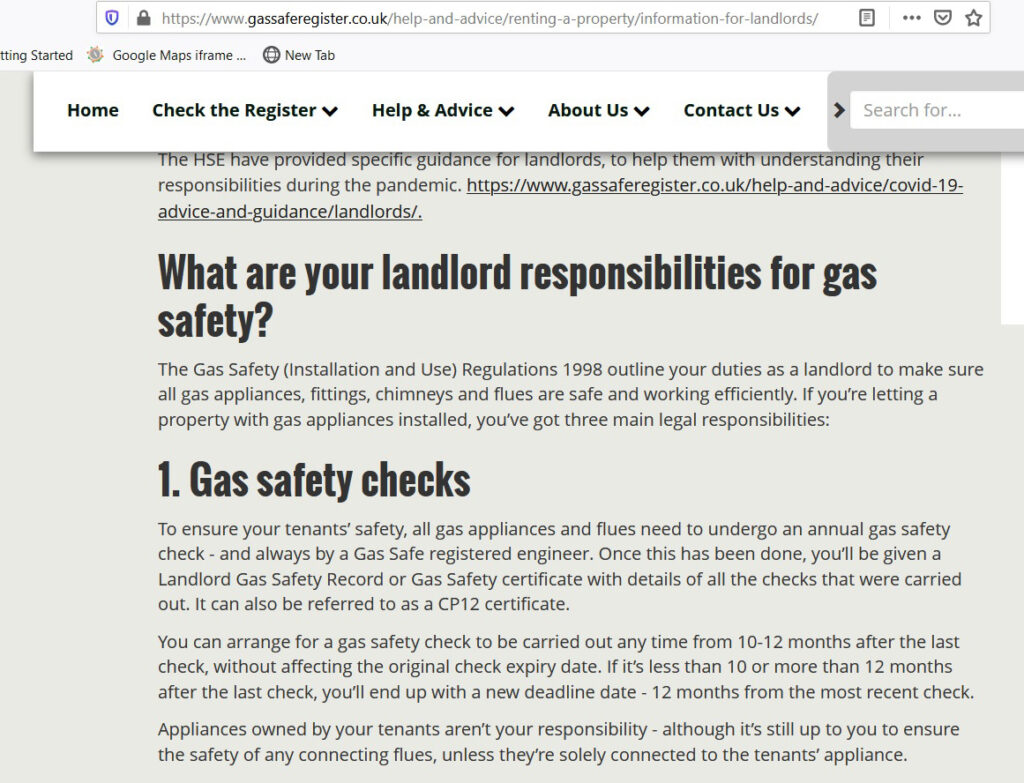











Leave a Reply
You must be logged in to post a comment.